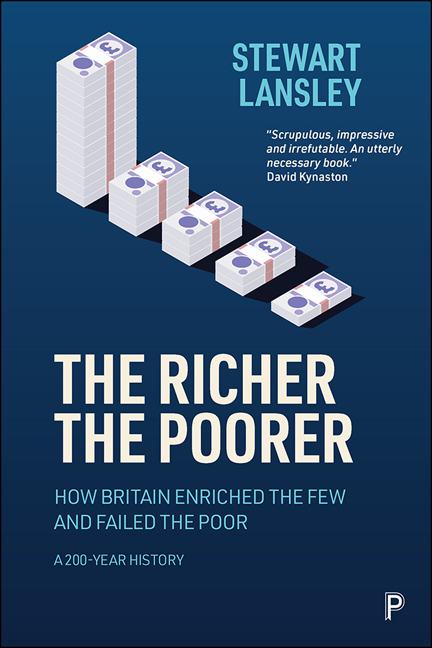Book contents
- Frontmatter
- Miscellaneous Frontmatter
- Dedication
- Epigraph
- Contents
- List of figures
- Preface and acknowledgements
- Introduction: Knighthoods for the rich, penalties for the poor
- PART I 1800–1939
- PART II 1940–59
- PART III 1960–79
- PART IV 1980–96
- PART V 1997–2010
- PART VI 2011–20
- Afterword: COVID-19 and ‘the polo season’
- Notes
- Index
- Frontmatter
- Miscellaneous Frontmatter
- Dedication
- Epigraph
- Contents
- List of figures
- Preface and acknowledgements
- Introduction: Knighthoods for the rich, penalties for the poor
- PART I 1800–1939
- PART II 1940–59
- PART III 1960–79
- PART IV 1980–96
- PART V 1997–2010
- PART VI 2011–20
- Afterword: COVID-19 and ‘the polo season’
- Notes
- Index
Summary
Labour's second key social goal was to create a modern, meritocratic society. The term ‘meritocracy’ had been popularised in 1958 by the sociologist Michael Young in his anti-utopian fictional essay The Rise of the Meritocracy. The book was a satire that looked at what a futuristic Britain would be like if economic success was based not on social origin but on talent and effort.
Far from advocating such a system, Young was issuing a stern warning that a winner-takes-all world would become ruthlessly competitive, hierarchical and unstable, with an even more tiered system of polarisation with those unable to make it ranked as failures. Others have dismissed a politics of aspiration, whereby success is measured by how far you rise and how much you are paid, as creating a society that justified inequality, where, ‘by definition, certain people must be left behind’. The contributions that people make to society, often outside of the market system through unpaid caring and volunteering, have long been out of step with pay levels and traditional hierarchies of status, as society found during the opening months of the COVID-19 pandemic when views on who were the most valuable members of society were turned upside down.
Morally naked
Despite these concerns, creating a more meritocratic –and competitive –society came to be a widely shared goal across the political divide. Margaret Thatcher, the daughter of a Grantham grocer, wanted a society based on merit not birth. Even though earlier Labour thinkers, such as Crosland, had warned that a meritocracy would not be a ‘just society’, Blair, minor public school and Oxford, picked up the baton. In 2001, Young reiterated his earlier prophetic warning with a lament of meritocracy's dominant position in the ideology of New Labour and the way it would further undermine the class who don't make it: ‘It is hard indeed in a society that makes so much of merit to be judged as having none. No underclass has ever been left as morally naked as that.’
Some free-market commentators have argued that modern societies are already highly meritocratic, with income differences more closely linked to the genetic inheritance of intelligence and aptitude than to background. The most powerful advocate of this view has been the influential American welfare critic Charles Murray, co-author of the controversial The Bell Curve, published in 1994.
- Type
- Chapter
- Information
- The Richer, the PoorerHow Britain Enriched the Few and Failed the Poor: A 200-Year History, pp. 172 - 176Publisher: Bristol University PressPrint publication year: 2021



